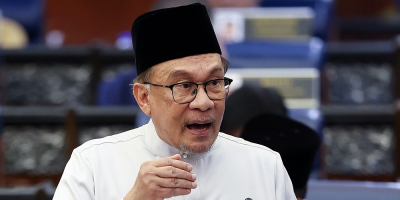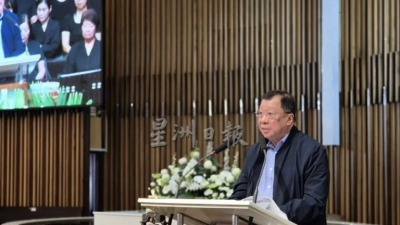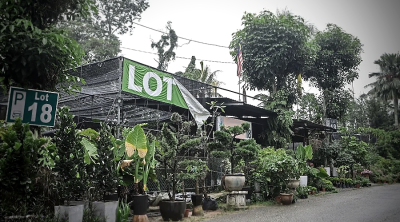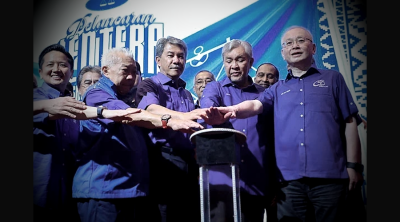
As we approach the 2025 Madani Budget Speech day, it is essential to remind all Malaysians of the government’s commitment to promoting good governance, sustainable development, and racial harmony across the nation.
Reflecting on the previous two Madani budgets, which allocated over RM780 billion, we must assess how effectively these funds have been utilised to benefit the rakyat, especially since this significant amount comes from the hard-earned contributions of taxpayers.
Credit must be given to the government for addressing unpopular economic reforms, such as the targeted subsidy for diesel which has successfully curbed smuggling and strengthened the nation’s finances.
We should also acknowledge our progress as a nation in various areas, including sustainable economic growth, support for vulnerable communities, improved public service delivery, infrastructure development, education and skills training, expanded healthcare services, innovation and digital transformation, green initiatives, fiscal responsibility, and the maintenance of peace and security.
As we strive to achieve high-income nation status by 2028 as predicted by the World Bank, the rakyat’s expectations for the government remain high.
This ambition should translate into higher incomes for a broader segment of Malaysians beyond just the T20 bracket. Currently, ten states in Malaysia fall below national average GDP per capita, with Kuala Lumpur’s GDP per capita being eight times that of Kelantan.
In comparison, the wealth gap between the richest (Massachusetts) and poorest (Mississippi) states in the US is only two-fold.
We urge that poorer states such as Kelantan, Perlis, Kedah, and Sabah be given greater attention in the 2025 Budget.
Moreover, a report from Khazanah Research Institute (KRI) indicates that over 90 per cent of Employees Provident Fund (EPF) members under 30 years of age are unlikely to accumulate sufficient basic savings of RM240,000 by retirement age.
Our future talent must see a future in this country, or we may need to explore alternative models, such as exporting Malaysian digital nomads globally!
A promising initiative is the Progressive Wage Policy (PWP), aimed at enhancing wages and reducing income inequality, particularly focusing on micro, small, and medium enterprises (MSMEs).
This voluntary program is designed to drive wage growth while enhancing productivity and skill development within the workforce.
However, despite its potential, many business owners express scepticism about the PWP’s nationwide rollout.
As of August 5, only 443 applications were submitted, with just 144 successful approvals—accounting for a mere 0.01 per cent of Malaysia’s MSMEs participating.
Recent news about the government’s extension of this initiative should be applauded.
Accelerating the success of the Progressive Wage Policy
The Prime Minister rightly emphasised that the success of economic structural reforms should be evaluated based on their ability to create jobs with meaningful wages for all Malaysians.
However, implementing the PWP will require addressing several challenges, including:
1. Employer resistance: Concerns about increased labour costs may lead employers to resist the policy, particularly in sectors with tight profit margins.
2. Implementation and compliance: Monitoring and enforcing compliance, especially among smaller firms, could prove challenging.
If guidelines are unclear, businesses may struggle to adopt the policy effectively.
3. Training and Skill Development: For the policy to succeed, workers need access to relevant training programs. Some employees may resist upskilling due to time constraints or a lack of incentives.
4. Economic impact: Raising wages without corresponding productivity gains could diminish the competitiveness of Malaysian companies, especially in labour-intensive industries.
Increased wages may also lead to higher production costs, potentially causing inflation and an elevated cost of living.
5. Labour market dynamics: Malaysia’s reliance on foreign labour, particularly in low-wage sectors, may complicate implementation. Ensuring the policy applies fairly to both foreign and local workers is essential to avoid disparities.
In conjunction with the wage policy, it is timely for the government to identify honest and competent leaders from both the public and private sectors to develop and execute a comprehensive High-Income Skilled Workforce Roadmap for the nation.
Recent concerns from tech multinational corporations like Nvidia Corp and Google highlight the shortage of skilled talent in Malaysia.
What happened to the nation’s target to develop 20,000 data professionals by 2020?
Conclusion
The 2025 Madani Budget presents a pivotal opportunity for the Malaysian government to address these challenges and collaborate with all stakeholders.
By prioritising meaningful wage growth and ensuring equitable implementation of the Progressive Wage Policy, Malaysia can move closer to its goal of becoming a high-income nation.
As we navigate these complexities, let us remain committed to fostering a prosperous and harmonious society for all Malaysians.
To borrow from our national anthem, “Negaraku Tanah tumpahnya darahku, Rakyat hidup bersatu dan maju.”

(Farouk Abdul Khalid is a Cambridge University alum passionate about sustainable development and driving Malaysia’s progress towards a high-income nation.)
ADVERTISEMENT
ADVERTISEMENT







































